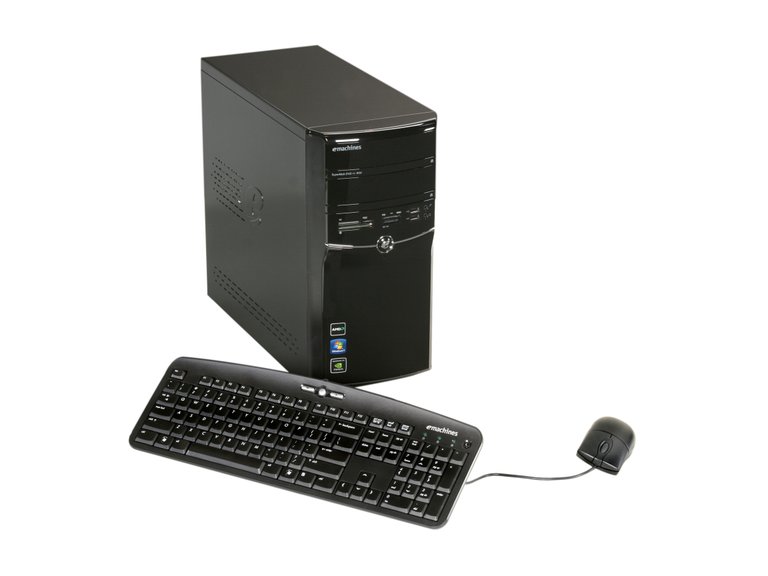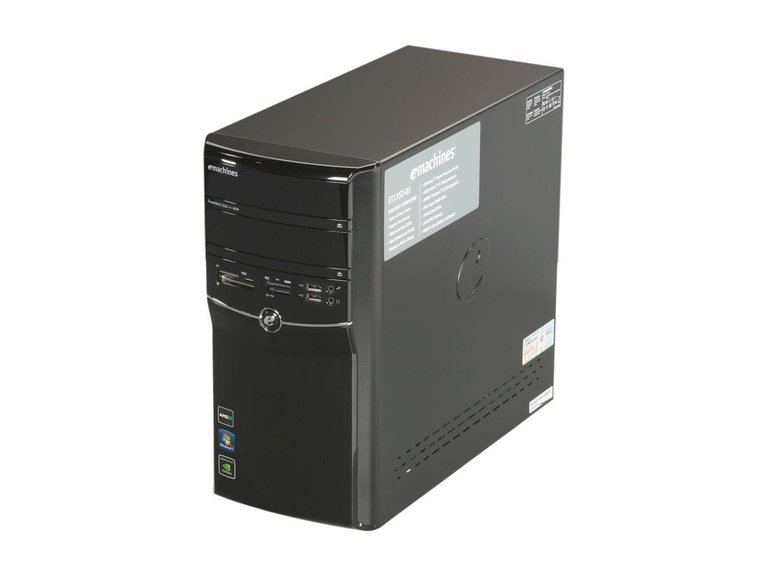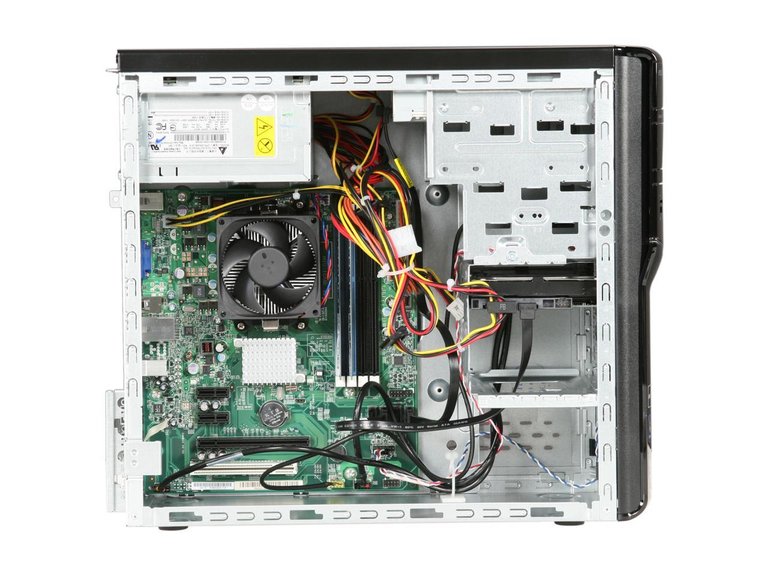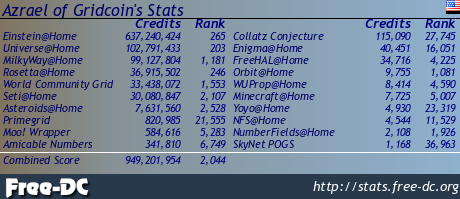
eMachines was known for their bargain basement desktop prices. The specs you got when you bought an eMachines computer were typically sufficient for the time but barely. Considering what you were paying that's not necessarily a horrible thing. I have a couple of eMachines in my collection that are decades old but still work fine so its not like reliability was bad across the board. Some models had their problems though. Power supplies were a notable failure point with some models.

I'm really not sure what the overall reliability of the ET1352-01 model was, only that the one I have still works fine. However, there's no doubt that the specs were pretty minimal. It had a single core CPU when multi-core CPUs had already long been the norm. It also came with only 2GB of RAM. Finally, it had an integrated video chipset that wasn't good for much of anything except basic display. System specs include:
- CPU: AMD Athlon II 160u
- RAM: 2 GB DDR3
- Video: nVidia GeForce 6150SE
For more complete hardware info, check out the output from HardInfo.

This CPU is literally the slowest available on socket AM3. It isn't much faster than some Pentium 4s released several years earlier. However, I suppose you could say one good thing about it...it only used 10-20 watts of power.
Despite having the nVidia name, the integrated GeForce 6150SE was pretty useless for most major contemporary games. I'm sure it was better that whatever Intel was putting on motherboards but that really isn't saying much.

I guess the one nice thing about a very cheap computer with low end components is that there are a lot of potential upgrade opportunities. I believe in the case of this machine, it uses standard components so the sky is the limit if you want to completely gut it.
Sticking with the original case, power supply, motherboard and drives, there is still a lot of upgrade room here. While it would not have shocked me if this computer was limited to 4GB, I was in fact able to upgrade it all the way to 8 GB. That puts it comfortably in modern Linux and Windows 10 territory.

The next obvious upgrade is the CPU. There is nowhere to go but up. In theory, you may be able to go as high as a Phenom II X6 which would give you a 6 core CPU. However, I was not really sure that this motherboard would reliably handle providing the power needed for that CPU. I decided to go with a Phenom II X4 910e. It runs at 2.6 GHz as well as providing 3 more cores.

Finally, I added a dedicated GPU. Sticking with the original power supply means that my choices are somewhat restricted. Probably anything that does not require an additional power connector would be ok. I stuck in an nVidia Quadro 600 just because I had one around. With these upgrades in can comfortable run a modern Linux distribution or Windows 10. I currently have Xubuntu installed.

There's no doubt this was an extremely low-end machine as configured. Fortunately, it has a pretty significant upgrade path making it a reasonable value for those looking to tinker with their machine but not wanting to build one up from scratch.

Like all the machines I operate, this one is crunching various BOINC tasks when it is on. Since it has a 64-bit CPU it can crunch tasks for pretty much any project. So far, it has complete tasks for Einstein@home, Asteroids@home, Milkyway@home, Rosetta@home, and World Community Grid. No tasks for Universe@home yet as I write this but there haven't been any available. You can also check out how it is doing overall at Free-DC.
Read more: https://www.megalextoria.com/wordpress/index.php/2024/09/07/digital-archaeology-emachines-et1352/
Check out my other Social Media haunts (though most content is links to stuff I posted on Hive or reposts of stuff originally posted on Hive):
Wordpress: https://www.megalextoria.com/wordpress
Tumblr: https://www.tumblr.com/blog/darth-azrael
Twitter: https://twitter.com/Darth_Azrael
Blogger: https://megalextoria.blogspot.com/
Odyssee: https://odysee.com/@Megalextoria:b
Rumble: https://rumble.com/c/c-2385054
Daily Motion: https://www.dailymotion.com/Megalextoria
Books I am reading or have recently read:
Fallen Founder: The Life of Aaron Burr by Nancy Isenberg
Tom Clancy's Op-Center: God of War by Jeff Rovin
Republic of Thieves by Scott Lynch
Mine Monero in your browser!
Earn Gridcoin while also helping various scientific projects by sharing your computer's idle CPU time!

